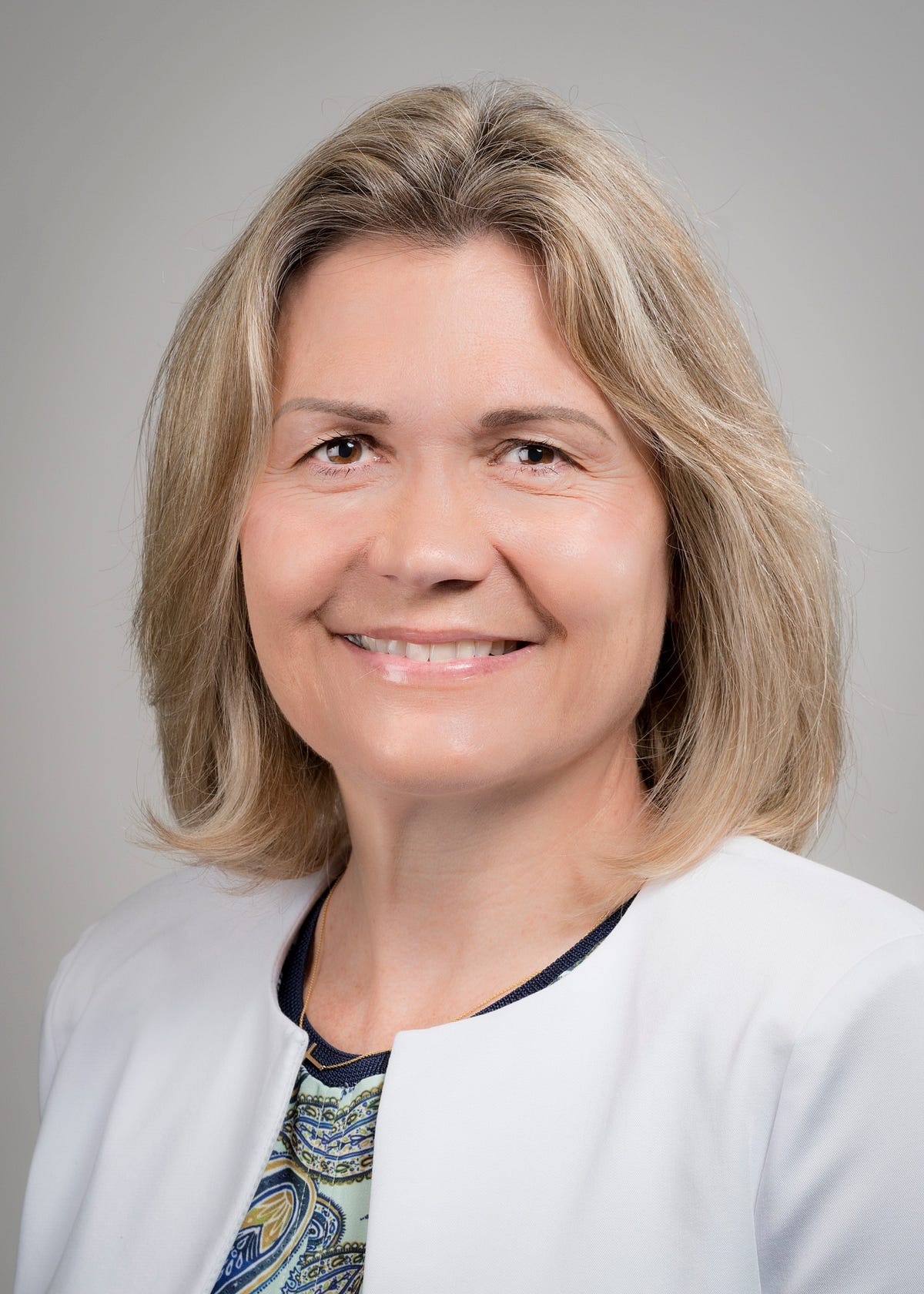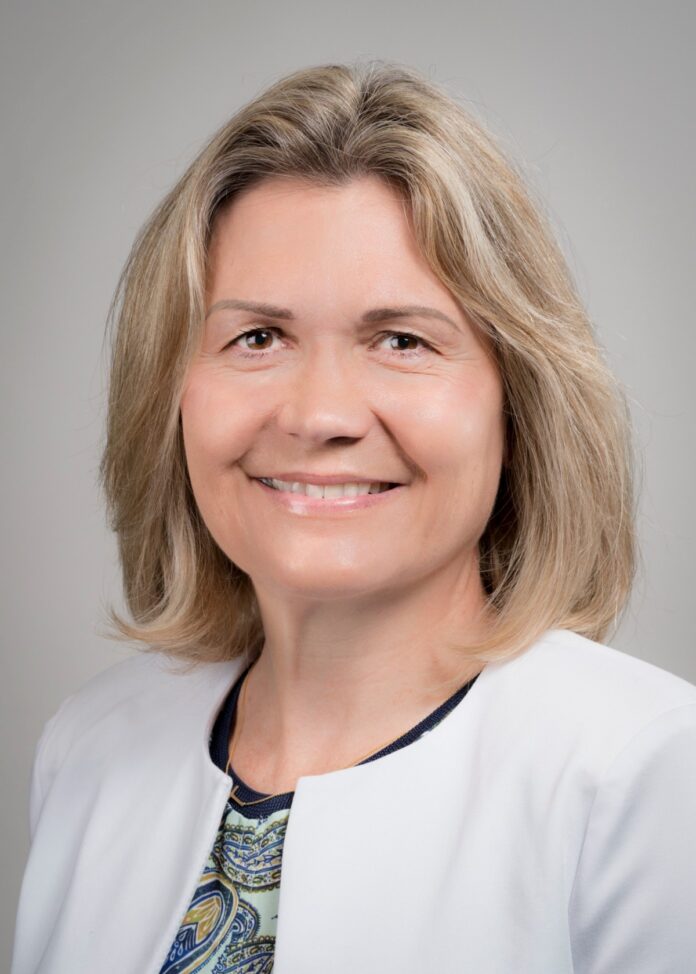“We Want To Lead A Movement To Use Plastics in A More Responsible Way” With Virginie Helias VP at Procter & Gamble

“Plastic has value and many of our brands come in recyclable packaging. We want consumers to recycle and be part of the circular economy. We are using post-consumer recycled material, we make our packaging so that it can be recycled, we help create the infrastructure so that people CAN recycle, we’ve invented technology that can unlock billions of pounds of recycled plastic and we continue to use our innovation and scale to drive smart changes in an area where change is needed.”
I had the pleasure of connecting with Virginie Helias Vice President Global Sustainability at Procter & Gamble. With 30 years of experience at Procter & Gamble in Brand Management and Innovation, Virginie has broad experience across multiple categories and global to local brand management expertise. She has worked across several of P&G’s multi-billion dollar brands, including Pantene, Ariel/Tide, and Pampers, and has extensive international experience having been based in France, the UK, Switzerland and the United States throughout her career. Today, she serves as Vice President of Global Sustainability, where her mission is to embed sustainability into the innovation, brand-building and everyday business practices at P&G.
Thank you so much for joining us! Can you tell us about the journey to your leadership role?
I was the lead marketer on our Ariel campaign, and we hit on this idea that by turning down your temperature, you helped reduce your environmental footprint and your energy bill. We called it “turn to 30”, and it was a resounding success. It was clear to me at that time that consumers really care about this, and we should be including it more about what we are doing about sustainability into our communications. P&G has been a leader in environmental sustainability for decades, and it is something that ingrained in the way we do business. We were the first to introduce sustainable innovations like using post-consumer recycled material and concentrated product. We were also one of the first companies to ever issue a Sustainability Report which we began in 1999.
What is your definition of success?
I’ve often said this and people have remarked that it seems odd but success for me is that I no longer have a job. I want people to know that P&G products help consumers consume responsibly. I want them to feel good about putting P&G products in their carts knowing they are doing their bit for the planet without having to sacrifice the performance they expect. That means sustainability needs to be fully built-in in our innovation and brand building plans. If I can do that, then there is no need for a sustainability leader and that is my goal.
Can you share the funniest or most interesting story that happened to you since leading sustainability for P&G?
I cannot give names but what has been most extraordinary to me has been to see business leaders who were skeptics suddenly turn into activists. Reasons for the change are complex — sometimes it could be very personal (his/her own children pushing them to do more or a documentary that had a special impact) or external reasons that made them realize the growing expectations from stakeholders. and sometimes it is seeing their peers delivering great results behind sustainability — a bit of internal peer pressure can also go a long way!
What failures have you had along the way of your career? How have they led you to success?
There are always failures but that is where you learn. It was tough coming into this role because the businesses were focused on the business. It was hard to make them understand and truly adopt the idea that sustainability was not an add on or an extra — it was a way to build the business. It has taken some time, but we are now in a place where our business leaders are asking for sustainability instead of me and my team trying to sell it in. They understand the value and know it is a business builder and should be incorporated into the business planning and not as a separate plan or add on after the fact.
How do you think your company stands out as a leader among sustainable businesses?
We have a long history of sustainability at P&G. This is not new to us and not a band wagon we jumped on. We lead by example be it through a new innovation that has the potential to revolutionize the plastics recycling industry, working with partners like Suez and TerraCycle to bring the world’s first bottle made from recycled beach plastic, to making significant contributions to help reduce climate change through our quick and cold cycle laundry detergent. No one company has all the answers, but we are going to use our scale, innovation, consumer understanding and the power of our brands to make a meaningful difference and help enable responsible consumption.
Are you working on any new or exciting projects now?
Of course. There is always exciting work going on in this space. I can’t share any of the details of our not-yet-released brand initiatives or our R&D efforts, but we launched our new environmental goals for 2030 that we are calling Ambition 2030. We say this because these goals are really ambitious such as seeing that no P&G packaging finds its way to the oceans and that 100% of our leadership brands will enable and inspire responsible consumption. We are focusing on the areas where we know we can make the greatest difference — our brands, supply chain, society and our employees.
Can you tell us about the initiatives that your company is doing to become be more sustainable? Can you give an example for each?
There are so many, but I will hit the highlights. We have a goal that no P&G packaging will finds its way to the oceans and in order to achieve that, we are looking at the opportunity holistically. We introduced the world’s first recycled bottle made with beach plastics and we are extending this initiative to more brands and more regions, we invented a technology that enables polypropylene to be recycled to nearly new condition which has the potential to revolutionize the plastics recycling industry, Tide Quick and Cold is helping consumers reduce their environmental footprint which is where our study says our biggest footprint is — consumer use doing laundry, brands like Febreze are working with TerraCycle to ensure our products can be recycled, our work with the smallholders in Malaysia and Indonesia to improve their livelihood while improving their sustainability practices, and finding innovative uses for would-be waste and helping get us to our goal of having 100% of our manufacturing sites send zero waste to landfill by 2020.
By incorporating sustainability into all areas of the business, we are able to operate more sustainably, helping save the company money, delivering a consumer benefit AND enabling our consumers to reduce their environmental footprint. Sustainability is not only the right thing to do but it’s good for business.
What advice would you give to other sustainability leaders to help engage employees as sustainability champions?
Our employees are very passionate about sustainability, and they are a great champions of our message. But this work must be recognized and rewarded as well as being part of a work plan and not a “nice-do-do-when-there-is-time”. One of the four focus areas for our 2030 goals is our employees, and we are committed to finding new ways to get even more people involved. It is important to have a top down approach — ensuring the support of the C-suite — and bottom-up to leverage the passion of the organization, especially the millennials for whom sustainability is a key reason to choose an employer.
None of us are able to achieve success without some help along the way. Is there a particular person who you are grateful towards who helped get you to where you are? Can you share a story about that?
Yes. Many of them who believed in sustainability as a business driver and have helped me bust barriers. Starting with the CEO who agreed to create a new position for me 7 years ago with a single mission : embed sustainability in our strategy, innovation, brand building and culture. I am also grateful to all the business leaders who were early adopters, courageous pioneers, who have leaned forward to develop great business ideas with sustainability at their heart — like the leader of the Head&Shoulders brand who developed the recycled beach plastic campaign. Those ideas went a long way to inspire others internally and accelerate the momentum.

How have you and P&G used your success to increase sustainable practices around the world?
We are part of many industry associations where we try to use our influence to make meaningful differences. We also have signed many pledges that illustrate our support for important issues like climate change and plastics recycling. We are founding members of the Closed Loop Fund which provides low or no interest loans to organizations creating recycling infrastructure in the US which is the model that is now used for Circulate Capital, a group organized to do this for south and southeast Asia to help stop the flow of plastics into our oceans. By being a leader and being vocal about what we believe, we are helping to increase sustainable practices around the world.
If you could inspire a sustainability movement that would bring the most amount of good to the most amount of people, what would that be?
Plastics is a hot topic now, and I think P&G is taking a leadership role in driving the behaviors that are needed to make a difference. Plastic has value and many of our brands come in recyclable packaging. We want consumers to recycle and be part of the circular economy. We are using post-consumer recycled material, we make our packaging so that it can be recycled, we help create the infrastructure so that people CAN recycle, we’ve invented technology that can unlock billions of pounds of recycled plastic and we continue to use our innovation and scale to drive smart changes in an area where change is needed.
Can you please give us your favorite “Life Lesson Quote”? Can you share how that was relevant to you in your life?
Winston Churchill — never never never give up. It is very true in the world of sustainability. In this world of increased consumption, it is hard to lead the change that is needed but when I look where we were 10 years ago and where we are now, it was worth the challenges we had to overcome to get here. It’s not an easy business but the more progress we make, the more acceptance and support there seems to be for the work that is being done. Had we said that this is too hard, and we aren’t going to lead decades ago, the world would look very differently.
This was very meaningful. Thank you so much for joining us!


